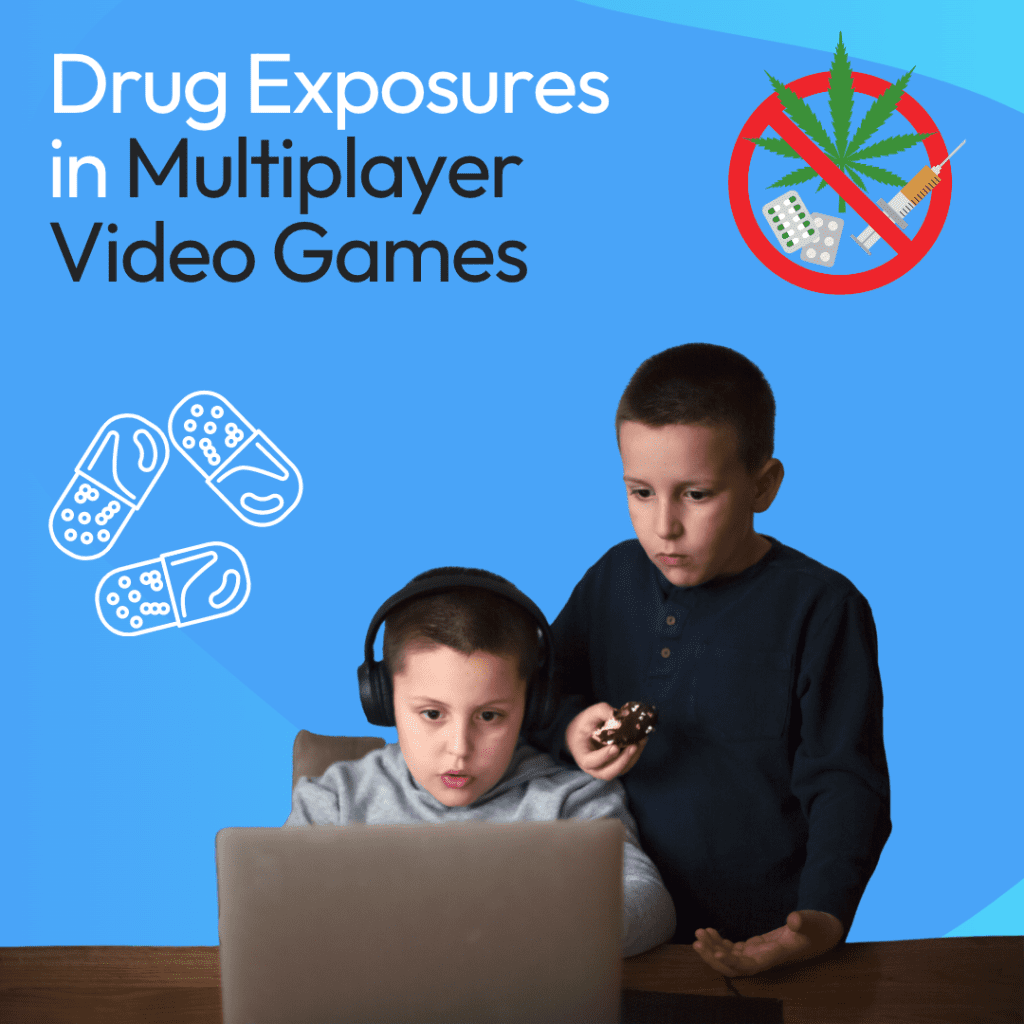As the world of gaming evolves, multiplayer online games have become increasingly popular among children. While these games offer exciting virtual experiences, there are concerns about potential drug exposures within these environments. In this blog post, we will explore the risks associated with drug exposures and children in multiplayer video games. By understanding the challenges, raising awareness, and implementing preventive measures, parents can play an active role in protecting their children from such exposures.
The Influence of Multiplayer Games
Multiplayer video games provide a platform for social interaction and collaboration among players. While most gaming communities foster positive engagement, there is a risk of encountering inappropriate content or discussions related to drugs within these virtual environments. Children, particularly those who may lack awareness or understanding of the dangers of drugs, can be susceptible to such influences. It is crucial for parents to be vigilant and proactive in safeguarding their children from potential drug-related exposures in multiplayer games.

Recognizing the Risks
There are several risks are associated with drug exposures in multiplayer video games. These include:
- Chat and communication platforms: Many multiplayer games feature chat functions, enabling players to communicate with one another. Unfortunately, these platforms can be used by individuals promoting or discussing drugs, which can expose children to harmful information.
- User-generated content: Some games allow players to create and share their own content, including in-game items or levels. This user-generated content may contain references to drugs or even include virtual representations of drug use.
- Online marketplaces: In certain multiplayer games, players can engage in virtual economies or marketplaces where they can buy and sell in-game items. There is a risk that illicit substances or drug-related paraphernalia may be disguised as or traded alongside legitimate virtual goods.
Keep your children safe with ProtectMe
Preventing Drug Exposures
To protect children from drug exposures in multiplayer video games, consider the following preventive measures:
- Parental controls and monitoring: Utilize parental control features available in gaming consoles, platforms, or software to restrict access to inappropriate content and online interactions. Regularly monitor your child’s gaming activities and engage in open conversations about their experiences.
- Educate your child: Have age-appropriate discussions about the dangers of drugs and the importance of making informed choices. Teach them to identify and report any inappropriate content or discussions they encounter while gaming.
- Encourage responsible gaming communities: Help your child find and engage with gaming communities that promote positive values and healthy interactions. Encourage them to play multiplayer games with trusted friends or family members to minimize exposure to unknown players.
- Stay informed and involved: Stay up-to-date with the games your child plays and research their online features. Familiarize yourself with the game’s terms of service and community guidelines to understand what is considered acceptable behavior.
- Report and block: Teach your child how to report and block players who engage in inappropriate or drug-related discussions or behaviors. Encourage them to inform you or a trusted adult if they encounter such situations.
- Seek professional guidance: If you suspect that your child has been exposed to explicit drug-related content or discussions that have caused distress, consider seeking guidance from a healthcare professional or a mental health expert.
Protecting children from drug exposures in multiplayer video games requires active parental involvement and awareness. By implementing parental controls, educating children about the risks, fostering responsible gaming communities, and maintaining open communication, parents can create a safer gaming environment for their children and mitigate the potential harm caused by drug-related exposures.